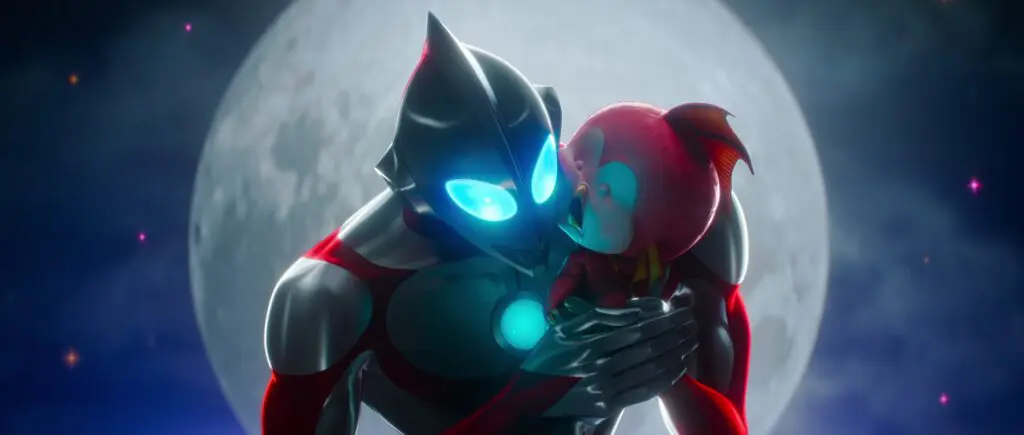Summary
With a strong focus on parenting, Ultraman: Rising becomes less about the Kaiju, and that’s not necessarily a bad thing.
Taking on your father’s mantle can be difficult, and that’s what Ken Sato has to do in Ultraman: Rising, the latest addition to the Ultraman franchise and the 44th movie. This animated feature toys with the idea of ego and talent, with parental relationships being the shining differentiator.
Ultraman: Rising has all the charms of Inside Out but never fully reaches its potential. It feels like a cinematic feature but solidifies itself as a Netflix movie by the end of it. Ken Sato (or Kenji — English voice by Christopher Sean) had a unique relationship with his mother by having a shared love for baseball, but he also had the pressure of becoming the next Ultraman once his father, Professor Sato, gave up the throne.
The story has a coming-of-age arc: Ken’s mother is dead, and he decides to take on both lives—he becomes Ultraman, helping and fighting the Kaiju and preventing casualties while also being a superstar baseball player. It’s the typical coming-of-age story of childhood shaping adulthood, with some past discretions keeping the adult at bay: Ken has a terrible relationship with his father, who is more passionate about Ultraman than him.
But the real story arrives when the KDF (an organization tasked with bringing down Kaiju) brings down Gigantron, Ultraman’s ultimate enemy. The giant Kaiju leaves behind an egg, and suddenly, Ken is left to raise a baby Kaiju.
Ultraman: Rising Gets Super Cute With Parenting Values
This is where the charms of the animated movie come into play. Ken is built up to be an arrogant character who has a failed relationship with his father and lacks understanding of the Kaiju.
Ultraman: Rising has an endearing story that works. In it, Ken has to navigate newfound fatherhood to understand and care for baby Kaiju alongside his supercomputer and AI, Mina.
If you’ve ever been a parent, you’ll undoubtedly smile when the baby Kaiju achieves milestones in their development. At this point, I wondered if this was what the movie was meant to be for. Is it meant to tap into those feelings of appreciating early life?
It’s a real test for the character, who seems more concerned with being an egotistical baseball player than a civilian-saving superhero.
Is This Movie A Good Addition To The Franchise?
I can’t make any judgment calls on the franchise alone: I’d have to dedicate weeks to understanding where this fits, and I certainly don’t want my readers to mistake Rising for the Netflix series released in 2019. It’s not a continuation of that show, but it’s a standalone piece of work.
Interestingly, one of the directors behind this project, Shannon Tindle, was also behind Netflix’s Lost Ollie, a series that I loved dearly. It still annoys me that it was never respected (or outright watched by the masses). You also have the second director, John Aoshima, who was Head of Story for Kubo and the Two Strings, another well-respected story.
Both directors have put their heads together to make Ultraman: Rising emotionally appealing, which is why it trumps the action. In a movie that follows a famous action maestro and Kaiju monsters, you’d expect it to be thrilling and chaotic, but it’s far more meaningful than what some fans would expect.
All I can say is that I enjoyed Ultraman: Rising as a standalone movie and for what it is. It could have been more if it had tapped into the emotional angle rather than given itself over to the more generic output.
RELATED:




